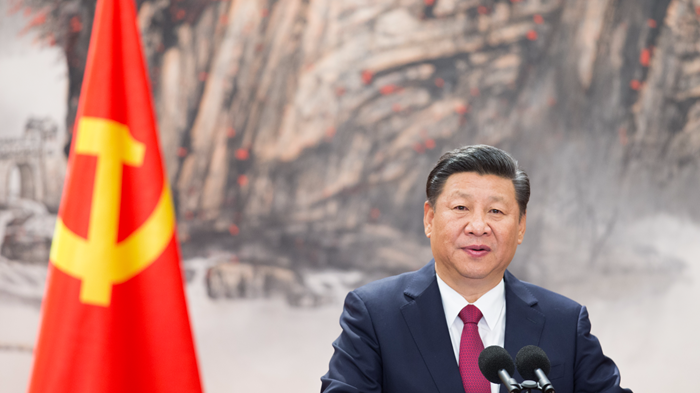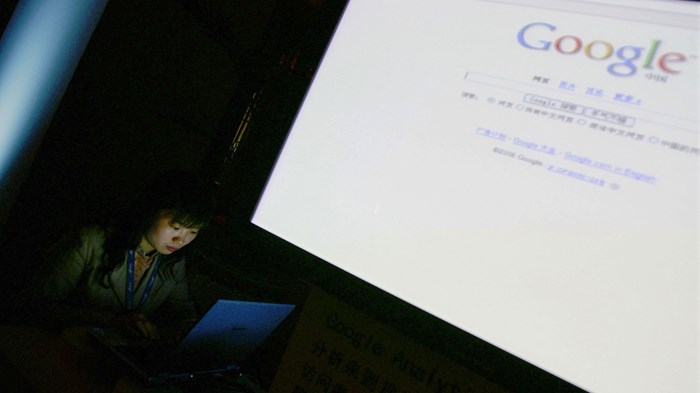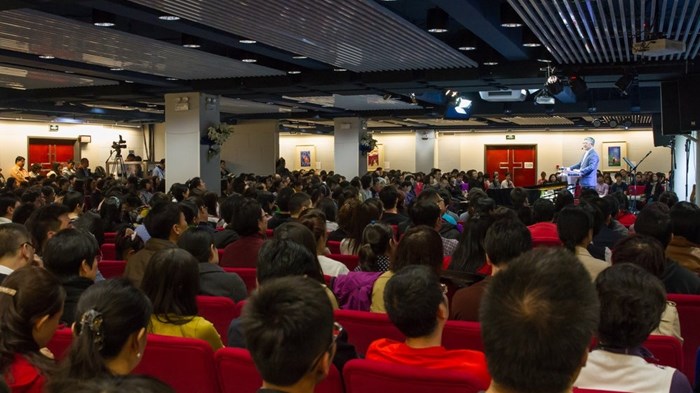NOVEMBER 17, 2017 10:07 AM
Image: Lintao Zhang / Getty Images
Click into all Blue and open it for more
Thousands of Christian villagers in China have been told to take down displays of Jesus, crosses, and gospel passages from their homes as part of a government propaganda effort to “transform believers in religion into believers in the party.”
The South China Morning Post (SCMP) reports that Communist Party of China (CPC) officials visited believers’ homes in Yugan county of Jiangxi province—where about 10 percent of the population is Christian. They urged residents to replace personal religious displays with posters of President Xi Jinping; more than 600 removed Christian symbols from their living rooms, and 453 hung portraits of the Communist leader, according to SCMP.
The efforts were part of a government campaign to alleviate poverty in the region, since some CPC members believe families’ faith is to blame for their financial woes, according to SCMP. The poster swaps in villagers’ homes represent the party’s desire to have residents look to their leaders, rather than their Savior, for assistance.
“Many poor households have plunged into poverty because of illness in the family. Some resorted to believing in Jesus to cure their illnesses,” the head of the government campaign told SCMP. “But we tried to tell them that getting ill is a physical thing, and that the people who can really help them are the Communist Party and General Secretary Xi.”
Though the party denies the claim, some Christians in Yugan county say they were told they would not be eligible for government assistance unless their posters were removed.
The news comes weeks after the CPC held its national congress, where Xi continued to consolidate party power and passed a historic measure to write his political philosophy into its constitution. SCMP called Xi “the country’s most powerful leader since Mao” Zedong, who also developed a personality cult through portraits in Chinese homes. The news outlet also noted Xi’s efforts to rein in the grassroots of Chinese society.
Xi continues a longstanding tradition by Chinese leaders to assert state power as an ultimate force and to rein in social movements that threaten it, according to Brent Fulton, president of ChinaSource.
Before Christians were asked to take down religious displays from their homes, the Yugan church removed its cross, as dozens of churches across Zhejiang and other Christian areas have done in recent years in order to comply with government regulations.
In September, China passed tighter restrictions regarding religious gatherings, teachings, and buildings. Though they are not slated to officially go into effect until February 2018, Christians in some provinces have already noticed a crackdown on their activity. Police detained leaders of a house church, as well as a three-year-old, who were caught singing in a public park.
In an analysis last year for CT, Fulton wrote:
The CPC’s control over religion is to be exerted not only through law, but also by reconciling religious doctrine with the party’s socialist values. While “religion serving socialism” has been in the CPC lexicon for some time, direct intervention in the beliefs and practices of individual religions—including calls for the “Sinification” of Christian theology—have become more common under Xi.
His speech directed religious groups to “dig deep into doctrines and canons that are in line with social harmony and progress … and interpret religious doctrines in a way that is conducive to modern China’s progress and in line with our excellent traditional culture.”
In an August op-ed for The New York Times, Chinese student Derek Lam called out“perverse” efforts to co-opt Christianity to endorse Xi’s political agenda.
“Judging by recent events, the party is very close to completing its mission of bringing Christianity under its thumb,” he wrote. “Although there is nothing I would love more than to become a pastor and preach the gospel in Hong Kong, I will never do so if it means making Jesus subservient to Xi Jinping.”
China Mulls Major Restrictions on Online Ministries
Foreigners would be prohibited from providing “religious information” to mainland Chinese via the internet, according to draft rules.
SEPTEMBER 11, 2018 10:58 AM
Image: Guang Niu / Getty Images
Chinese Christians have one month to tell their government what they think of proposed new rules that ban the sharing of prayer, Bible reading, baptism, communion, and other forms of religious activity online
China’s State Administration for Religious Affairs (SARA) posted a draft yesterday of new regulations on online religious activities that would “forbid the streaming of religious ceremonies (live on the internet), including prayer, preaching and even burning incense,” reports AsiaNews, which broke the story.
The new measures, contained in 35 articles, are “much more restrictive and analytical” than regulations on religious activities in real life that went into effect in February, according to AsiaNews:
For example they establish that anyone who wants to open a religious site, must seek permission from the authorities and be judged morally healthy and politically reliable.
Organizations and schools that receive the license can only publish didactic material via the Internet in their internal network, accessible only through a registered name and password. The rules emphasize that such organizations can not try to convert someone, and they cannot distribute religious texts or other material.
“They are still in draft form and await comments from the public, but as is almost always the case, the draft is in practice the final text,” reports Asia News.
SARA stated the new measures are intended to “regulate internet religious information service activities and maintain religious harmony and social harmony.” It asked for public feedback by October 9 via its website and by email or regular mail.
The previous real-life restrictions were also proposed in September and finalized in October, before being implemented the following February.
CT reviewed a crowdsourced translation of the draft rules, where Article 15 spells out the prohibited online activities. Some would not be objected to by Chinese Christians leaders, such as propogating heresy or using trickery or coercion to obtain assets. Others include:
-
recruiting followers or setting up religious organizations, schools, and sites
-
inciting minors to participate in religious activities
-
selling, marketing, or distributing internal religious materials
-
undermining peaceful relations between religions, or between religious and non-religious citizens
-
attacking the state’s religious policies and regulations
In other articles, the draft rules prohibit the digital transmission—by text, photos, audio, or video—of prayer, baptisms, reciting scripture, or communion. (The ban would also apply to burning incense and Buddhist prayers.)
Most notably, foreign and non-mainland (i.e. Hong Kong and Taiwan) organizations and individuals would be prohibited from providing “internet religious information services” to mainland Chinese users.
This would apply to a broad swath of online activity: “information involving religion, including that relating to religious doctrine, religious knowledge, religious culture, or religious activities, that is transmitted as text, images, audio or video through means of Internet websites, applications, forums, blogs, microblogs, public accounts, instant messaging, or online live-streaming.”
Providers of such online material must be approved by the state, and must obey existing laws as well as actively adapt religion to Chinese socialism and preserve ethnic unity and social stability. Their license would be valid for three years before renewal.
Such websites, blogs, or other digital ministries would be prohibited from containing in their names the words China, Chinese, or National, while “religious names” like Catholic, Christian, or Buddhist could only be used to the specific religious groups and their schools or sites.
Religious groups, schools, or “activity sites” that obtain license to provide religious information online would be allowed to have religious professionals preach on their platforms and conduct religious education. However, they must have all users registered under their real names, and their interpretation of religious doctrines and rules must be conducive to “social harmony, the progress of the times, and healthy civilization,” according to the crowdsourced translation.
Also, both preaching and education must implement a “real-name management system.”
Organizations and individuals without a license would be prohibited from preaching or teaching online, and even prohibited from forwarding or linking to such content.
In a potentially foreboding sign for Christians on China’s massive social networks, the draft rules state that online broadcasters without the new religious licenses must prohibit their users from publishing religious information on those platforms.
If the draft rules are finalized, existing religious sites will have six months to come into compliance.
CT previously reported how Chinese Christians increasingly face rising red tape as they practice their faith.
China Bans Zion, Beijing’s Biggest House Church
Shut down after Sunday services, influential congregation had refused orders to install government surveillance cameras.
SEPTEMBER 10, 2018 4:47 PM
Image: St. Charles Institute
Sunday service at Zion Church
Beijing authorities threatened to close Zion Church last month after the 1,500-member congregation, one of the Chinese capital’s largest house churches, refused to install surveillance cameras in its sanctuary.
After services on Sunday, officials delivered on their threat to the unofficial Protestant congregation, which meets in a renovated hall in northern Beijing. Zion is now banned and its materials confiscated, reports Reuters.
“On Sunday, the Beijing Chaoyang district civil affairs bureau said that by organizing events without registering, the church was breaking rules forbidding mass gatherings and were now ‘legally banned’ and its ‘illegal promotional material’ had been confiscated,” reported the news agency, citing images of the notice and confirmation by churchgoers.
“I fear that there is no way for us to resolve this issue with the authorities,” Zion’s pastor, Jin “Ezra” Mingri, told Reuters.
ChinaAid reports that Zion, the biggest house church in Beijing, “has decided it will not be swayed by the ban and instead hold services outdoors.” The strategy echoes how another noteworthy Beijing house church, Shouwang, responded to similar problems in 2011.
“Churches will continue to develop. Blocking the sites will only intensify conflicts,” Jin told the Associated Press. (Agence France-Presse also reports on the closure.)
Zion had received a letter from city authorities in April, asking the church to install 24 closed-circuit video cameras in the building for “security reasons,” Reuters previously reported. “The church decided this was not appropriate,” Jin told the agency. “… Our services are a sacred time.”
Following the church’s refusal, state security officials and police started to harass churchgoers, going as far as contacting their workplaces and asking them to promise not to go to church.
The church was in the process of being evicted from the building it occupies, despite assurances from the landlord that it could rent the facility until 2023.
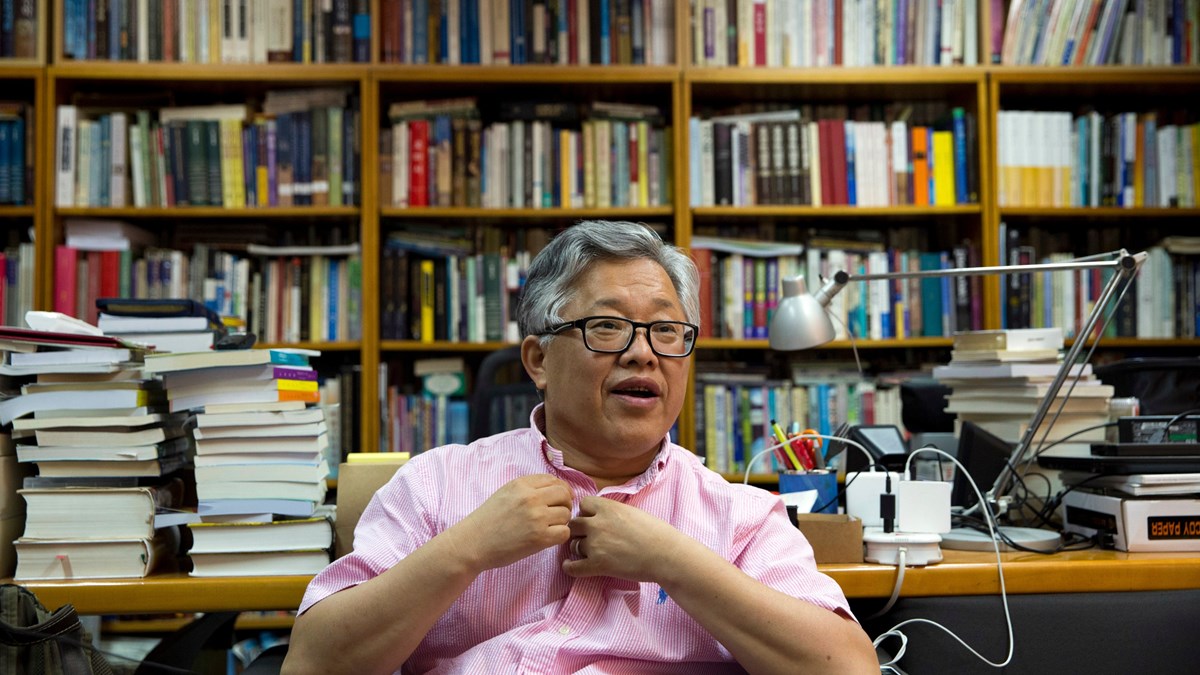
Image: Ng Han Guan / AP
Pastor Ezra Jin of Beijing’s Zion Church, during an August 2018 interview with the Associated Press.
The St. Charles Institute recently analyzed Zion’s landlord dispute as a case study of how “rental leases [are] being used as a new weapon to suppress Chinese house churches.”
Pressure is applied “through opaque queries of fire protection measures, by questioning the legality of printed materials used by the church, through harsh and unfair applications of business licensing requirements, and so on,” stated the Christian rights agency. “The common feature of these legal tactics is the effort to close houses of worship for ‘non-religious reasons,’ and in so doing, sidestep the accusation of suppressing religious freedom.”
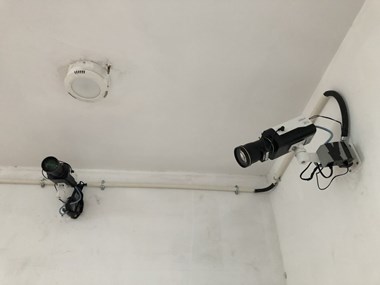
Image: St. Charles Institute
Security cameras with facial recognition technology, in the lobby of the Beijing building where Zion Church rents space.
Meanwhile, more than 250 Chinese church leaders have signed a joint open letter protesting the erosion of their religious freedoms.
Wang Yu, a prominent rights lawyer who has defended Christians and who was recently baptized at Zion, said she feared the situation would get worse, reported Reuters, “given the authorities have started describing the church as a ‘cult’ when pressuring churchgoers. In one of its statements, Zion also says authorities have called the church a cult.”
“Being labelled a cult was how it all started for the Falun Gong in 1999,” Wang told the agency, referring to the spiritual movement the Communist Party banned that year.
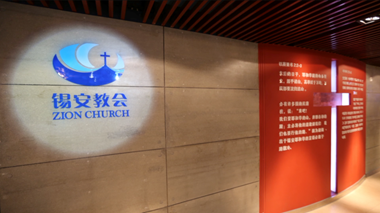
Image: St. Charles Institute
Zion Church in Beijing
Under President Xi Jinping, China’s government has sought to increase control over religious affairs.
In February, revised regulationscame into force on religious groups; where implemented, churches have started to face increased pressure to “sinicize”—to be “Chinese” in orientation—culturally and to be in submission to the authority of the Communist Party.
This involves burning of crosses and replacing them with the Chinese flag; showing slogans praising the Communist Party and the values of socialism in religious buildings; and taking away sacred images seen as “too Western,” according to a report by AsiaNews, referring to incidents in several provinces.
In Shangrao, a city in Jiangzi province, at least 40 churches were forced to display banners that forbid foreigners from preaching, and anyone under 18 from attending, the Catholic news site reported.
It added that in Shenyang in Liaoning province and in Xuzhou in Jiangsu province, “dozens of domestic churches have been closed … forcing communities to join the Three-Self Movement, the official government controlled Protestant community.”
Meanwhile, on August 26 the Communist Party published revised regulations for its own members, including a clause for those who are religious.
“Party members who have religious belief should have strengthened thought education. If they still don’t change after help and education from the party organization, they should be encouraged to leave the party,” state the new rules, according to Reuters.
The rules also warn that those who attend “activities that use religion for incitement” face expulsion.
CT previously reported the rising red tape that Chinese churches face, as well as how another prominent Beijing house church resorted to worshiping outside.
 Join the conversation on Facebook
Join the conversation on Facebook
OCTOBER 17, 2017 8:00 AM
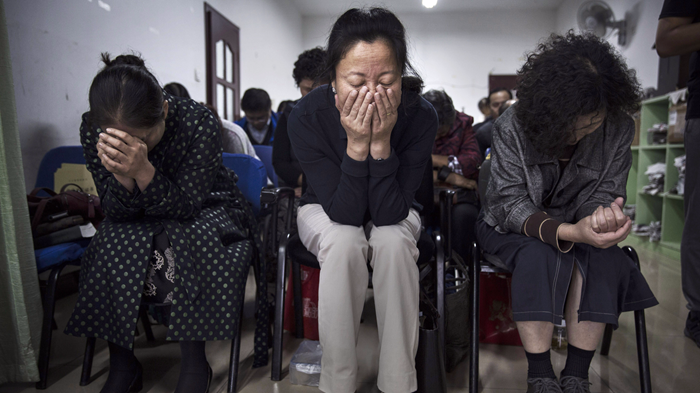
Image: Kevin Frayer / Getty
AChinese house church pastor, her daughter, and her young grandson have been arrested, weeks after being accused of overstepping the country’s newly tightened religious restrictions.
Chinese officials warned Xu Shizhen in August that publicly sharing her faith puts her in violation of the government policy. It wasn’t her first run-in with authorities; five years before, her previous church was forcibly seized by officials and given to China’s official Three-Self Patriotic Movement church, according to ChinaAid.
After that, she started Zion Church. By singing, dancing, and preaching in the parks and public spaces of Xianning, Hubei province, Xu’s ministry broke the new law, which confines most faith activities to the walls of registered churches.
Last month, Xu, her daughter Xu Yuqing, and her three-year-old grandson Xu Shouwang were arrested; the two women were transferred to other facilities while the boy was held at the station. Christian advocates in China report that their exact whereabouts remain unknown.
Their detention came just two weeks after China toughened up its restrictions on religious activities.
“The new religion regulations are sweeping in scope and, if fully enforced, could mean major changes for China’s unregistered church, not only in its worship and meeting practices, but also engagement in areas such as Christian education, media, and interaction with the global church,” wrote ChinaSource president Brent Fulton.
“Yet the nature of these activities and, indeed, of much religious practice throughout China, makes enforcement extremely problematic.”
It appears enforcement, at least in Xu’s Xianan district of Xianning, is going to be strict. The regulations—which include prohibitions against publishing religious materials without approval, accepting donations without approval, or renting space an unregistered church—don’t even officially go into effect until February 2018.
Other provinces have been coming down especially hard on religious education for children. In Zhejiang province—where hundreds of crosses were torn off churches over the past several years—elementary and middle school children weren’t allowed to attend church or Sunday school this summer.
In Wenzhou, a coastal city in Zhejiang province nicknamed “China’s Jerusalem,” officials warned more than 100 churches to keep their teens home from summer camps or Sunday schools.
North of Zhejiang, officials in Henan province also forbid church summer camps, claiming the hot summer temperatures would be unhealthy for youth.
China’s young Christians drew international attention over the summer when two were killed by ISIS in Pakistan. Meng Li Si, 26, and Li Xinheng, 24, were teaching in a private school in Quetta when they were kidnapped and murdered.
Their deaths prompted scrutiny from both China and Pakistan, where interior minister Chaundhry Nisar called for a tightening of the process that issues visas to Chinese nationals.
Meng and Li were in Pakistan on business visas, two among the thousands of Chinese sent west to help build infrastructure and trade routes as part of China’s “One Belt, One Road” trade push. The initiative has already been identified by China’s Christians—who want to send out thousands of missionaries—as a natural avenue for the gospel
Red Tape: China Wants to Constrict Christian Activities with 26 New Rules
Both official and house churches now face bigger threat than cross removal campaign.
OCTOBER 03, 2016 11:58 AM
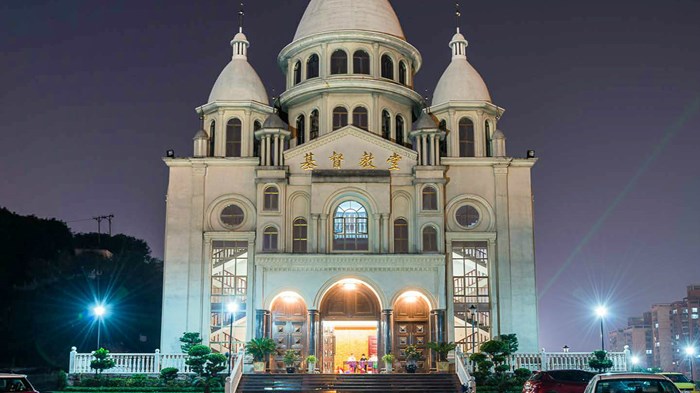
Image: ChinaAid
One of hundreds of Zhejiang churches whose crosses have been forcibly removed.
This week is the last chance Chinese Christians have to tell their government what they think of its latest religion law.
China released a draft of new religious restrictions in September, including the prohibition of online religious services, running religious events in schools, and organizing people to leave the country to attend religious training or conferences.
The State Administration for Religious Affairs (SARA) then opened up a one-month window for responses to the 26 new rules in its Regulations on Religious Affairs. The final day for public response is Friday, October 7.
The draft law opens with the assurance that all Chinese citizens are free to believe whatever they want and to engage in religious activity—as long as it’s within the tighter limits. One Chinese religious policy expert, who asked to remain anonymous, summed up some of what the regulations include:
-
No religious activities that are not approved by SARA.
-
No one may provide a venue for religious services that are not approved by SARA.
-
No one may use their home for religious practices that are not approved by SARA (including home or family Bible studies).
-
No publishing religious materials without approval from SARA.
-
No foreign or domestic donations may be made to any religious organization that hasn’t been approved by SARA.
-
No one may call themselves a pastor without the approval of SARA.
-
No international religious exchanges may happen without the approval of SARA.
-
No one may study theology at school without the approval of SARA.
